
The team behind the NeuroRelational Framework
We’re on a mission to improve the assessment and treatment of adults, children, and families with complex diagnoses through data-driven, customized, and collaborative care.
The NRF Institute offers dynamic educational training to cross-sectored communities with at-risk infants, young children, adults, and families, based upon the use of the NeuroRelational Framework (NRF). In addition, we are pursuing scientific research that assesses the outcomes of the child, adult, families, providers, and communities using the NRF.
The NRF Institute offers dynamic educational training to cross-sectored communities with at-risk infants, young children, adults, and families, based upon the use of the NeuroRelational Framework (NRF). In addition, we are pursuing scientific research that assesses the outcomes of the child, adult, families, providers, and communities using the NRF.
Leadership Team
We are educators and practitioners serving families
Founder/Executive Director
Connie Lillas, RN, MFT, PhD
Connie is the founder and executive director of the NeuroRelational Framework (NRF) Institute. She believes overwhelmed practitioners and stressed parents can get cohesive care that cultivates connection and joy.
Connie has a background in high-risk maternal-child nursing, family systems, and developmental psychoanalysis. She specializes in both treating and training within neurodiverse populations and early intervention settings, trauma histories and mental health clinics, child welfare systems, and medical settings.
When she’s not supporting practitioners and parents, you can find her walking her dogs with her husband, spending time with her family playing games, and being on or by the water.
Connie has a background in high-risk maternal-child nursing, family systems, and developmental psychoanalysis. She specializes in both treating and training within neurodiverse populations and early intervention settings, trauma histories and mental health clinics, child welfare systems, and medical settings.
When she’s not supporting practitioners and parents, you can find her walking her dogs with her husband, spending time with her family playing games, and being on or by the water.
Full bio
Connie is a National Graduate Zero To Three Leadership Fellow and donates her pro bono time to promoting child welfare reform in Los Angeles. Connie has a part-time private practice, specializing in dual diagnosis across both developmental delays and mental health concerns.
In addition, she trains communities locally, nationally, and internationally on the NeuroRelational Framework’s most recent publication of The NRF’s Three Steps to Resilience Foundations Interactive Manual. This manual translates the theory of her original work, coauthored with Janiece Turnbull, into clinical practice that applies to all those with trauma histories, neurodivergent status, and complex diagnoses. Connie is Faculty at University of Davis’ NAPA Infant-Parent Fellowship and at the University of Washington’s Barnard Center’s Advanced Clinical Training Program (ACT).
Connie is launching a research pilot project that will work towards providing reliability in the use of the Awake States Indicators. Her team will develop a Coding Manual for training and research purposes in collaboration with the STAR Institute in Denver. Connie’s long-term goal is to collect evaluative data regarding the NRF’s efficacy over time in multiple communities.
In addition, she trains communities locally, nationally, and internationally on the NeuroRelational Framework’s most recent publication of The NRF’s Three Steps to Resilience Foundations Interactive Manual. This manual translates the theory of her original work, coauthored with Janiece Turnbull, into clinical practice that applies to all those with trauma histories, neurodivergent status, and complex diagnoses. Connie is Faculty at University of Davis’ NAPA Infant-Parent Fellowship and at the University of Washington’s Barnard Center’s Advanced Clinical Training Program (ACT).
Connie is launching a research pilot project that will work towards providing reliability in the use of the Awake States Indicators. Her team will develop a Coding Manual for training and research purposes in collaboration with the STAR Institute in Denver. Connie’s long-term goal is to collect evaluative data regarding the NRF’s efficacy over time in multiple communities.

NRF Faculty
Carole Anne Hapchyn, MD, FRCPC
Carole Anne is an NRF Trainer and Mentor of practitioners across sectors of care in Alberta, Canada. She is an infant and early childhood psychiatrist who sees children and families at the ElmTree Clinic in Edmonton. Carole Anne is passionate about teaching and is a Clinical Professor of Psychiatry at the University of Alberta.
When she is not at her computer or reading, she is dancing and exercising.
When she is not at her computer or reading, she is dancing and exercising.
Full bio
Carole Anne is an infant and early childhood psychiatrist who has provided assessment and treatment for infants and young children and their families for over 30 years in Edmonton, Alberta, Canada. She was the medical lead of Infant Preschool Services at CASA Child, Adolescent and Family Mental Health and of the Autism Clinic at the Glenrose Rehabilitation Hospital. She currently works in private practice and is Co-Director at the ElmTree Clinic, an outpatient psychiatry clinic for infants, young children, and their families.
Carole Anne completed medical school at the University of Alberta, adult psychiatry training at Boston University and child psychiatry training and a fellowship in infant mental health at the University of Toronto. She is passionate about teaching and is a Clinical Professor of Psychiatry at the University of Alberta. Carole Anne is a past president and founding member of the Alberta Association for Infant and Early Childhood Mental Health. She is collaborating with agencies, educators, and health and mental health care providers in Alberta to incorporate the NeuroRelational Framework into practice in her role as faculty, trainer, and mentor for the NRF.
Carole Anne completed medical school at the University of Alberta, adult psychiatry training at Boston University and child psychiatry training and a fellowship in infant mental health at the University of Toronto. She is passionate about teaching and is a Clinical Professor of Psychiatry at the University of Alberta. Carole Anne is a past president and founding member of the Alberta Association for Infant and Early Childhood Mental Health. She is collaborating with agencies, educators, and health and mental health care providers in Alberta to incorporate the NeuroRelational Framework into practice in her role as faculty, trainer, and mentor for the NRF.

NRF Faculty
Jennifer Hixson, PhD, BCBA
Jennifer is a clinical and school psychologist, who also specializes in working with people with Autism and their families. Jennifer has implemented the NRF across the spectrum of settings from outpatient to acute hospitalizations and with ages birth to 99.
Currently, Jennifer applies NRF principles when conducting assessment for people with neurodiversity and those who have experienced trauma, substance abuse, and complex diagnoses.
In her free time, Jennifer likes to relax by any body of water, watch movies with her family, and work in the yard.
Currently, Jennifer applies NRF principles when conducting assessment for people with neurodiversity and those who have experienced trauma, substance abuse, and complex diagnoses.
In her free time, Jennifer likes to relax by any body of water, watch movies with her family, and work in the yard.
Full bio
Jennifer is a behavioral health professional providing mental health services to children, adolescents, and their families for the past 20 years. She is credentialed as a licensed psychologist, school psychologist, and is versed in Applied Behavior Analysis. Jennifer has an extensive background in studying and treating complex trauma and the effects of toxic stress, studying under national experts such as Dr. Dan Hughes, who is the founder of Dyadic Developmental Psychotherapy; Dr. Elizabeth Warner, the developer of SMART; and Dr. Constance Lillas who is the co-developer to the NeuroRelational Framework (NRF).
Jennifer has experience working in behavioral health settings such as acute psychiatric hospitals, residential treatment centers, intensive out patient, and outpatient agencies. She has also spent periods of time in school settings working from early intervention/infant mental health through 12th grade. While she engages in on-going direct services, her 20 years of experience allows her to teach, train, and consult in order to grow the next generation of behavioral health professionals versed in the effects of toxic stress and ways to heal from such effects.
Jennifer has experience working in behavioral health settings such as acute psychiatric hospitals, residential treatment centers, intensive out patient, and outpatient agencies. She has also spent periods of time in school settings working from early intervention/infant mental health through 12th grade. While she engages in on-going direct services, her 20 years of experience allows her to teach, train, and consult in order to grow the next generation of behavioral health professionals versed in the effects of toxic stress and ways to heal from such effects.
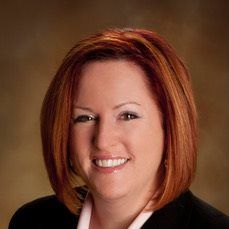
NRF Faculty
Betty Peralta, MIT, MS-MHC, IMH-E (III)
Betty is an NRF Trainer and Consultant for home visitors, early learning and K-12 educators, and parents around Washington. She trains/consults for the state’s Department of Child, Youth and Family, Court Appointed Special Advocates (CASA), and Office of Public Defense, as well as King County’s Developmental Disabilities Administration.
Other specializations include infant and childhood mental health, K-12 special education, and Diversity, Equity, and Inclusion (DEI).
In her free time, Betty works on her Vashon Island farm, spends time with family and friends, and travels to learn about different cultures in the US and beyond.
Other specializations include infant and childhood mental health, K-12 special education, and Diversity, Equity, and Inclusion (DEI).
In her free time, Betty works on her Vashon Island farm, spends time with family and friends, and travels to learn about different cultures in the US and beyond.
Full bio
Betty taught in K-12 schools for 14 years in Seattle, The Dominican Republic, Kuwait, and Tanzania and became an infant and childhood mental health specialist at Navos in 2014. She now works privately as a parent educator and coach for domestic violence shelters and family court dependency cases; reflective consultant for home-visiting agencies; and Interaction Specialist in her practice, ALTA: Alternative Learning and Therapeutic Avenues, where she works with individuals seeking relationship help with children, partners, and themselves.
Betty trains on Facilitating Attuned Interactions (the FAN) with Cooper Houseand provides equity, trauma-informed care, and self-care trainings using the NeuroRelational Framework for K-12 teachers, early childhood educators, and therapists around the state.
Betty received her BA from The Evergreen State College in 1992, her Masters In Teaching from Seattle University in 1999, and her Masters of Science in Mental Health Counseling in 2014. She is endorsed by the Washington State Infant Mental Health Association and faculty advisor for the NeuroRelational Framework Institute.
Betty trains on Facilitating Attuned Interactions (the FAN) with Cooper Houseand provides equity, trauma-informed care, and self-care trainings using the NeuroRelational Framework for K-12 teachers, early childhood educators, and therapists around the state.
Betty received her BA from The Evergreen State College in 1992, her Masters In Teaching from Seattle University in 1999, and her Masters of Science in Mental Health Counseling in 2014. She is endorsed by the Washington State Infant Mental Health Association and faculty advisor for the NeuroRelational Framework Institute.
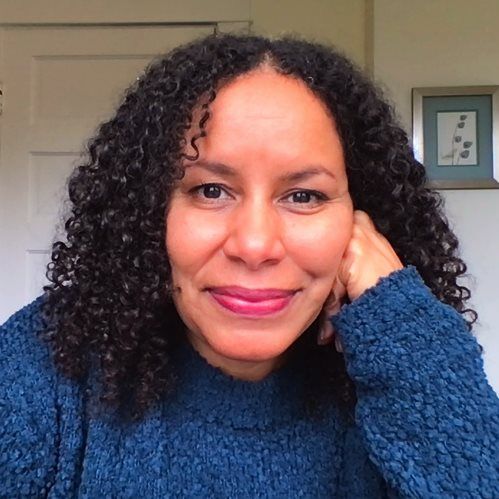
NRF Faculty
Jessica Richards, MS, MSW, LCSW
Jessica is an experienced NRF trainer who has provided over 100 NRF trainings and presentations including Zero to Three, WAIMH, and is the primary trainer for Los Angeles County Department of Children and Family Services.
Jessica specializes in neurodiverse populations, selective mutism, anxiety disorders, and child welfare.When she’s not supporting practitioners and parents, you can find her running, playing board games, or spending time with her dog.
Jessica specializes in neurodiverse populations, selective mutism, anxiety disorders, and child welfare.When she’s not supporting practitioners and parents, you can find her running, playing board games, or spending time with her dog.
Full bio
Jessica is an experienced NRF trainer who has provided over 100 NRF trainings and presentations including Zero to Three, WAIMH, and is the primary trainer for Los Angeles County Department of Children and Family Services. Jessica was the lead therapist in the NRF court team pilot project at Edelman’s Children’s Court in Los Angeles. She has contributed to many NRF curricula and uses the NRF as licensed psychotherapist to provide neurodevelopmentally informed and individualized care for children and families. She is endorsed in California as an Infant-Family and Early Childhood Mental Health Specialist and Reflective Practice Facilitator II.
Jessica has been trained in Child-Parent psychotherapy, a relationship and play-based therapy with a strong evidence-based foundation for the treatment of trauma and family stressors. She has developed a unique treatment for children with Selective Mutism by adapting the dominant evidenced-based practice using the NRF principles. This customized approach tailored to each child’s unique stressor triggers and resiliency has an extraordinarily high success rate. Her specialized Dual-Masters education provides an advanced foundation in applied child development and clinical social work.
Jessica is passionate about working with families and children. She loves training across diverse sectors and is grateful her professional journey led her to Dr Connie Lillas and the NRF in 2009.
Jessica has been trained in Child-Parent psychotherapy, a relationship and play-based therapy with a strong evidence-based foundation for the treatment of trauma and family stressors. She has developed a unique treatment for children with Selective Mutism by adapting the dominant evidenced-based practice using the NRF principles. This customized approach tailored to each child’s unique stressor triggers and resiliency has an extraordinarily high success rate. Her specialized Dual-Masters education provides an advanced foundation in applied child development and clinical social work.
Jessica is passionate about working with families and children. She loves training across diverse sectors and is grateful her professional journey led her to Dr Connie Lillas and the NRF in 2009.
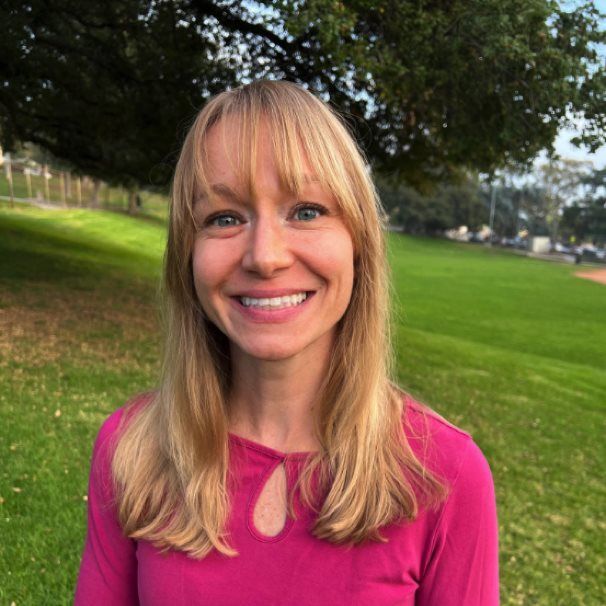
NRF Faculty
Traci Swink, MD
Traci's three decades of clinical work, research and teaching has been devoted to children with special needs and their families since starting her pediatric training at the University of California, San Francisco and pediatric neurology/epilepsy residency and fellowship at the Johns Hopkins Medical Center.
Traci was introduced to the DIR® model in 2003 and since completing her DIRFLoortime® Institute Certificate in 2009, has been integrating principles of the DIR® model into her work with children and families. Traci's clinical practice focuses on young children with regulatory challenges, sensory based motor disorders, communication disorders and autism spectrum and related disorders.
Traci was introduced to the DIR® model in 2003 and since completing her DIRFLoortime® Institute Certificate in 2009, has been integrating principles of the DIR® model into her work with children and families. Traci's clinical practice focuses on young children with regulatory challenges, sensory based motor disorders, communication disorders and autism spectrum and related disorders.
Full bio
At the Child Development Center at Marshfield Medical Center, Traci leads a multi-disciplinary team working to identify, understand and treat complex neuro-developmental disorders. Her team strives to integrate the complexities of early development, individual differences and relationships into the assessment and treatment process of every child and family and to promote lasting and positive growth and change. Traci provides supervision and training to clinicians throughout the Marshfield Medical Center and the Marshfield Clinic pediatric residency training program. She received her DIRFloortime® certificate in 2009 and joined the senior faculty at the Profectum Foundation in 2014. Over her career as a pediatrician, neurologist and developmental specialist,
Traci has presented at numerous local and national pediatric, neurologic and developmental conferences and is currently teaching at Profectum.
Traci has presented at numerous local and national pediatric, neurologic and developmental conferences and is currently teaching at Profectum.
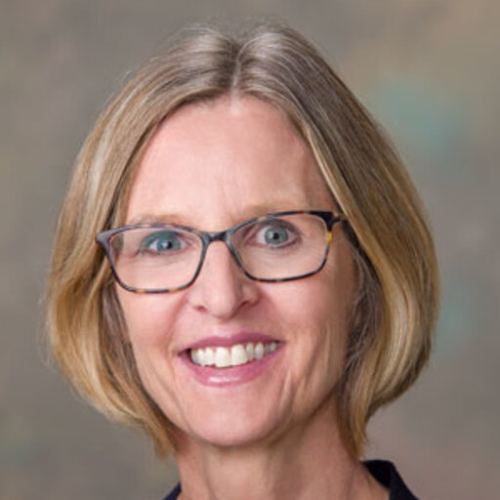
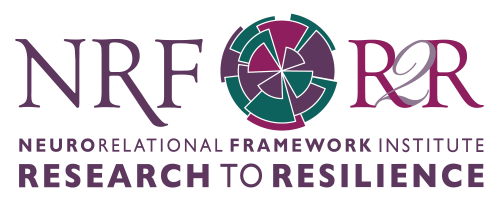
NRF Institute is offering dynamic educational training to cross-sectored communities with at-risk infants, children, adults, and families experiencing trauma, neurodiversity, and complex diagnoses based upon the use of the NeuroRelational Framework (NRF).
Join our Mailing list
Thank you!
Copyright © 2025 NRF
